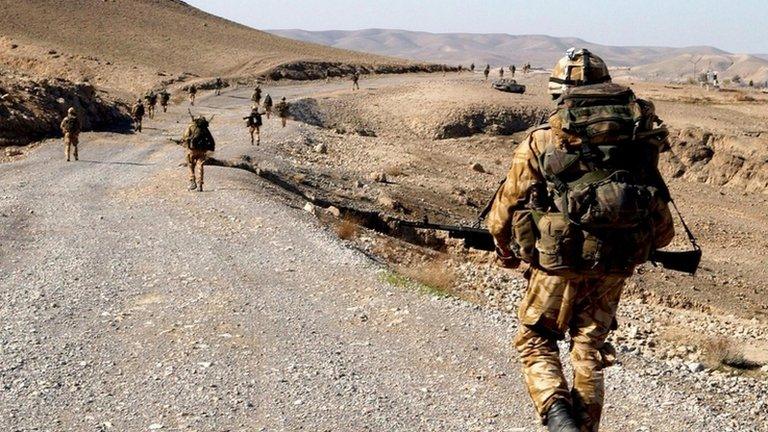Clarification demanded over Afghan interpreters UK visas
- Published
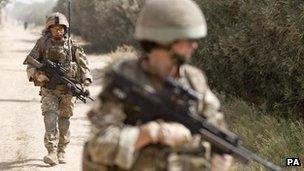
More than 2,000 interpreters have served alongside British troops since the war began
Many Afghan interpreters who worked with the British army could be excluded from a scheme to give them refuge in the UK, a lawyer and campaigners say.
The Foreign Office said the scheme will apply to more than 1,000 Afghan staff made redundant in January 2013.
But campaigners are concerned at the government's "limited" criteria.
One senior backbench Conservative MP called on ministers to ensure the scheme is opened up to any interpreter who has served since 2006.
Under the proposals, a five-year visa would be offered initially to those who worked regularly on the front line.
It would give interpreters a choice either to go on working in Afghanistan or "make a new start in Britain", a government spokesman said.
'Undermine the policy'
Around 500 of the 1,100 staff working with the British troops are interpreters - but they also include cooks, cleaners, drivers and others.
Many of the interpreters who will be helped say they have received serious threats to their lives, while some have already fled to the UK to claim asylum.
While final details of the scheme are not expected until the end of May, lawyers representing Afghan interpreters said "large numbers" might still be not be covered.
Rosa Curling, who acts for three of the interpreters, said she was pleased the "bravery of the Afghan interpreters now seems to have been recognised".
But she added: "We are, however, concerned that some interpreters may not qualify if the scheme is only available to those employed between December 2012 and December 2014 and limited to front-line staff only.
"This would completely undermine the purpose of the policy."
Afghan interpreter: I had to flee the country
Ms Curling has written to lawyers representing the Ministry of Defence asking for specific details of the scheme.
One interpreter "Abdul" said: "We risked everything to do this job and we are glad that the British government has recognised our service and the sacrifices we made for them. "
But another "Mohammed" told the BBC: "I don't think it goes far enough - the PM has made a decision but not the right decision."
Campaign group Avaaz, which is behind an 83,000 signature petition calling for all Afghan interpreters to be given asylum, said the plan was "too limited".
An interpreter who started the petition said: "I risked everything to do this job and I never thought the British government would abandon some of us like this."
Conservative MP David Davis told the BBC: "If that's true they'll cut out all sorts of people who have given up being an interpreter precisely because their lives were under threat."
Referring to the start of British operations in Helmand province, he said the scheme should "cover anyone who's served since we went in in 2006", adding: "We owe these people a debt of honour."
But a government spokesman said that, with regards giving people refuge in the UK, there was already a "separate mechanism in place for investigating threats to our staff and former staff".
"In the most extreme cases our intimidation policy allows for relocation to the UK and this will remain in place.
"This intimidation policy is separate from the redundancy package and will remain in place."
More than 2,000 interpreters have worked with British troops in Afghanistan.
Earlier this month, the prime minister said the UK should encourage "talented Afghans to stay in their country", including a "really generous" package of support for interpreters.
'Ransom'
Labour's Yvette Cooper welcomed what she called the government's "U-turn" over giving Afghan interpreters UK visas but said she would have to study the details of the move.
Under the plans, those allowed into the UK on a five-year visa would then be able to apply for indefinite leave.
The Border Agency would approve how many close family members they are allowed to bring.
Interpreters who choose to stay in Afghanistan would be allowed to sign up for fully-funded training and education for five years, or instead be paid at their current rate for a further 18 months.
Under the new plan, some other locals who had helped British soldiers in non-front-line roles, such as cooks and security guards, would also be given the choice of training and education, or further payments.
After the Iraq war, Britain gave Iraqi interpreters either one-off financial assistance or exceptional indefinite leave to remain in the UK with help to relocate, or the opportunity to resettle through the UK's Gateway programme run in partnership with the UN's High Commissioner for Refugees.
- Published22 May 2013
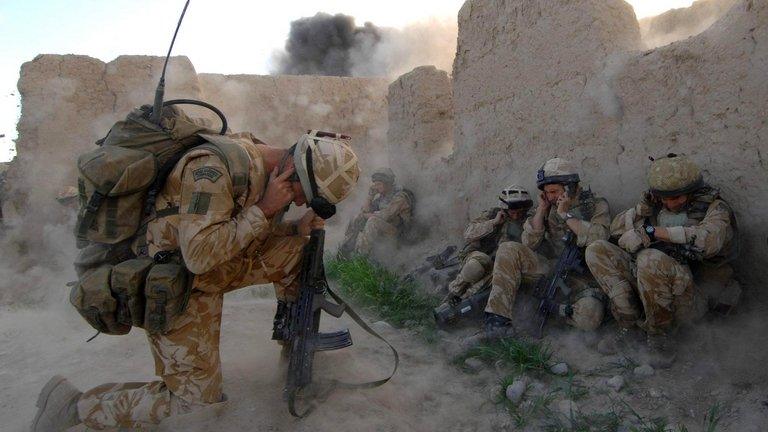
- Published22 May 2013
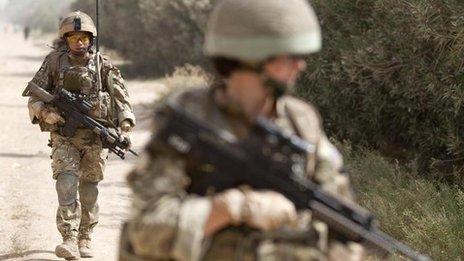
- Published3 May 2013
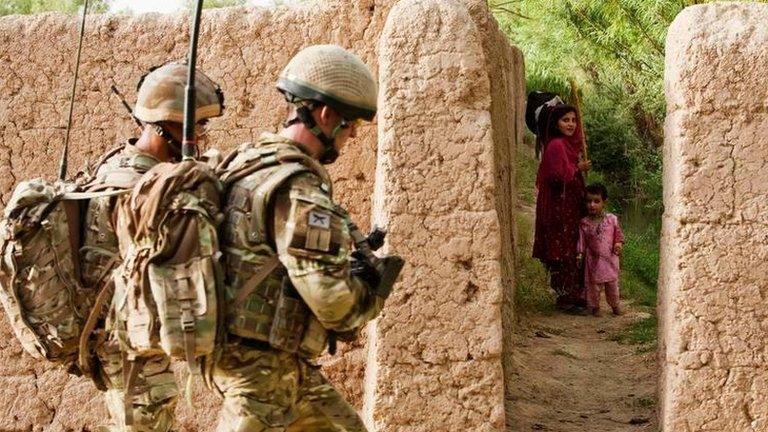
- Published1 May 2013

- Published11 February 2013
